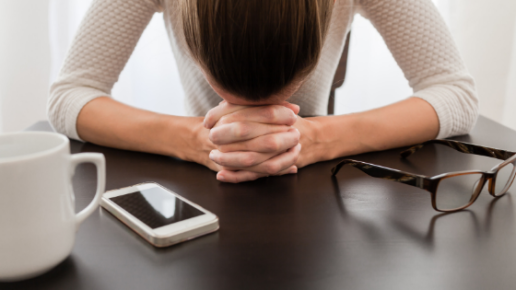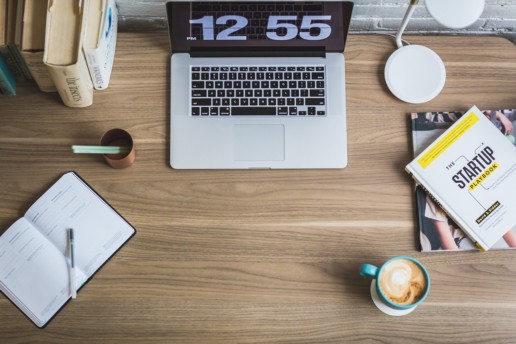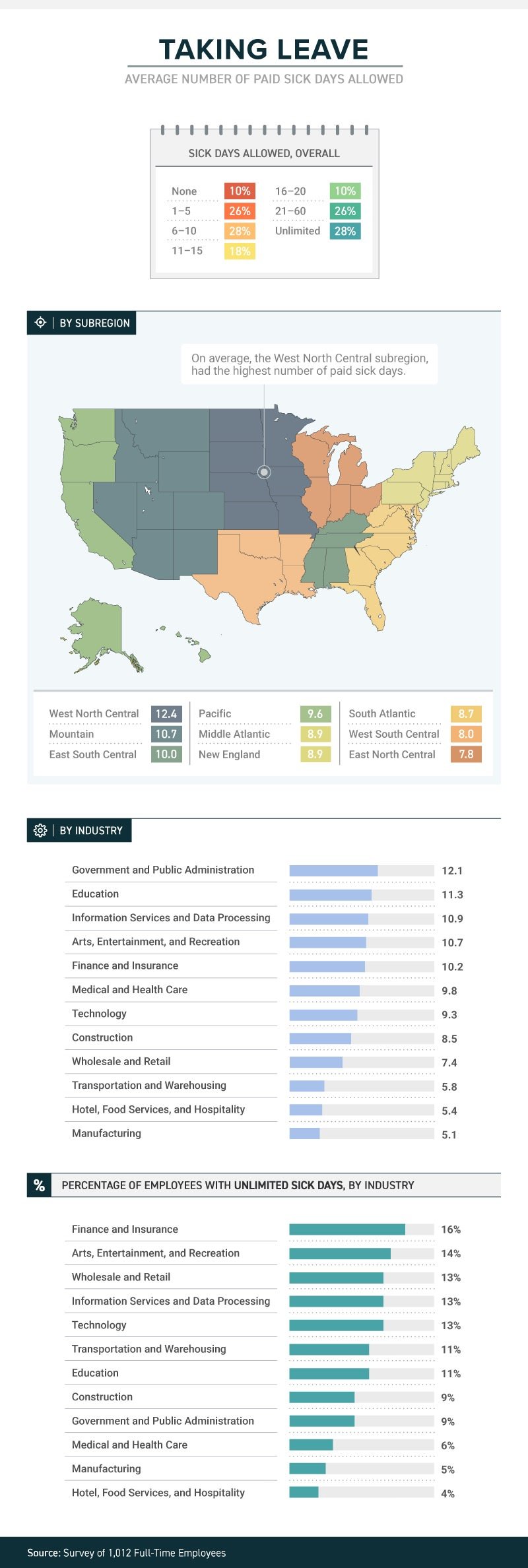Employees say ‘feeling stressed’ is top reason for lying about sick days
Many employees use their sick days for their physical and mental health when they feel as if they won't be at their peak to perform their job. With that being said, employees may also use sick days when they feel stressed. Read this blog post to learn more.
A third of employees have lied to their employer about their reasons for taking a sick day, with the most common reason being stress, according to a new report by international health benefits provider Aetna International.
As the world’s attention turns to the mental health impact of COVID-19, these confessions suggest that the stigma remains in workplaces.
“If employees have physical or mental health problems, then they're not going to be at their peak to be able to do their job,” says Dr. Hemal Desai, global medical director at Aetna International. “When people lie to take a day off, it really hides the problem, and when they are at work, presenteeism is a really big issue.”
The Employee Perceptions of Mental and Physical Health in the Workplace report explores the views of employees in regards to taking sick days, discussing health issues at work and the impact a mental health diagnosis can play in reducing their experiences of stigma.
Out of the employees surveyed in the U.K., the U.S., Singapore and the United Arab Emirates, those in the U.S. are the most likely to lie to their employer about their reason for taking a sick day. While “wanting a day off” was the second most frequently cited reason for lying, the most common reasons overall related to mental and emotional health, ranging from feeling stressed or down to not thinking their boss would understand.
In the U.S., about 40% of people reported a mental health diagnosis, but less than half of adults receive treatment, according to the National Alliance on Mental Illness. The fear of stigma around these mental health challenges is an issue employees must address, Dr. Desai says.
“Employees don't feel that taking sick leave for mental health problems is something that will either be accepted or considered as good practice by their employers,” Dr. Desai says. “It’s important employers address this hidden problem, because it will ultimately drive better productivity and wellbeing of their workforce.”
Creating a culture of acceptance, especially from a company’s leadership team, is a first step employers can take to easing the stigma of speaking up.
“Employers can do a lot to try and foster more transparency and reduce stigma. Making that parity between mental and physical health will create much more transparency and build trust within an organization, especially if there’s an open culture, particularly by senior leaders, where you can talk about mental health issues,” he says.
Employers also need to ensure employees are aware of and are using mental health resources and benefits, Dr. Desai says. A large majority of companies offer mental health benefits through an EAP, but utilization rates for these services are typically below 10%, according to SHRM. Boosting usage is key to supporting employee wellbeing.
“Employers need to be working with health and benefits providers, because the providers will have a lot of support tools that can help employees,” he says. “Making sure that that support is there from the employers is really key, so that you can drive a really happy and healthy workforce that can be productive, which is particularly important during this COVID-19 situation.”
SOURCE: Nedlund, E. (11 June 2020) "Employees say ‘feeling stressed’ is top reason for lying about sick days" (Web Blog Post). Retrieved from https://www.benefitnews.com/news/employees-say-feeling-stressed-is-top-reason-for-lying-about-sick-days
With the Advent of Remote Work, Is the ‘Sick Day’ Becoming Passé?
With many employees working remotely full time, is the practice of employee sick days becoming out of date? Read this blog post from SHRM to learn more.
Your advertising manager works from home full time. She has a nasty cold. But hey—she only needs to walk a few steps from her bedroom to her desk, can nap when she needs to and won't infect her colleagues. So she doesn't really need to take a sick day, right?
Well, she probably should, but as remote work continues to rise, workplace experts find that those who do their jobs from home are inclined to stay on the clock while soldiering through colds, the flu and other maladies—in part because they don't want to appear to be taking advantage of their work-from-home benefit.
"Remote workers find it hard to integrate work with the rest of their life because it is so easy to overwork and even plow through your work while you are sick," said Jeanne Meister, founding partner of Future Workplace, a New York City-based HR executive network and research firm. "If you are only traveling from your bedroom to your home office, remote workers may rationalize, 'What harm can be done if I work while I am sick? At least I'm not contagious.' "
In addition, the advent of remote working has introduced another trend: managers suggesting that onsite employees work from home when they're sick.
"It's no secret that many [workplaces] have cultures that encourage the 'always-on' mentality," said Erica Denner, head of people and culture at YouEarnedIt/HighGround, an Austin, Texas-based company that focuses on employee recognition, rewards and performance management. "In my experience, I've found that because of this, employees at these organizations can find it difficult to ask for time off when they're sick and are often encouraged to work from home instead."
Circumstances Matter
Thanks to technology that facilitates remote work, there are instances when working during what otherwise would have been a sick day may actually be a win for the employee and employer.
"There are all kinds of reasons to take sick days," said Ellen Galinsky, president of the Families and Work Institute and a senior research advisor for the Society for Human Resource Management. "If employees have a condition that affects their ability to be mobile, like a broken bone or torn tendon, they might have to take a sick day if they work in a traditional workplace because travel to work would be difficult, but they could easily work at home. I can think of other such illnesses, such as having something contagious and not wanting to infect others but feeling good enough to work or being postoperative and being able to work in short spurts. Working at home could be ideal for that."
Consider U.S. Supreme Court Justice Ruth Bader Ginsburg, who recovered from cancer surgery at home but nonetheless heard arguments in a case before the court. A court spokesperson said Ginsburg would participate "on the basis of briefs, filings and transcripts," CNBC reported.
But if working while ill prevents an employee from fully resting and recuperating, this will likely hinder performance—and even future productivity and morale.
"If an employee is really sick, he or she might power through and get a few things done but might not do them well," Galinsky said.
Working through your cold, sore throat or flu not only can lead to a decline in physical well-being but "also can present mental health challenges," Meister said.
Contractors, or so-called gig workers, in particular, may be wary of taking sick time. Lacking job security, they may fear that doing so would make them appear dispensable to their employers.
What Employers Can Do
To discourage employees from avoiding sick days because they're working remotely:
Communicate to employees that you expect them to take time off when they're sick. Or, encourage them to be open about how much work, if any, they feel they can accomplish. "If you can't produce high-quality work, even from the comfort of your own home, when you're under the weather, relay that message to your manager," Denner said. "If they value your contributions and are a good supervisor, they will understand and step in to help until you're feeling better."
At YouEarnedIt/HighGround, workers are asked to make it clear when they are out sick and unavailable. This includes setting up not only the typical out-of-office notification by e-mail but also notifications across productivity platforms the company uses, such as Slack. "It's remarkable how effective turning on the 'out sick' emoji in Slack is in terms of alerting colleagues you need time to recover," Denner said. "When employees are out on a longer-term medical leave, we actually remove their technology access so they can't check e-mails or Slack. This way, the employee doesn't feel guilty or obligated to respond to messages."
Talk about the importance of taking sick days for one's physical and mental well-being. Bring up the topic during all-hands meetings with onsite as well as remote workers. In benefits materials and handouts, address the importance of taking sick days.
Ensure that managers and executives take sick days themselves. When a boss shows up at a meeting sniffling and coughing, she sends the clear message that work is too important to be interrupted by illness. And that only leaves her subordinates feeling guilty if they take sick days.
"We've found that [modeling sick-day behavior] actually goes a long way in not just encouraging our employees to do the same, but also in further solidifying a culture of trust and respect," Denner said.
Encourage remote workers to take time for themselves even when they're healthy—such as taking a midday break—and reinforce how this is important for their well-being and productivity.
SOURCE: Wilkie, D. (6 February 2019) "With the Advent of Remote Work, Is the ‘Sick Day’ Becoming Passé?" (Web Blog Post). Retrieved from https://www.shrm.org/resourcesandtools/hr-topics/employee-relations/pages/remote-workers-and-sick-days-.aspx
Ready for the sounds of office sniffles?
A recent study by law firm, Farah and Farah, states that one in four full-time workers receive between 1 and 5 sick days. Continue reading to learn more.
It’s not just a matter of whether they feel well enough to work, or whether they have sick days. The boss’s attitude about whether workers should take sick days or not can determine whether they actually do stay home when they’re sick, or instead come to work to spread their germs to all and sundry.
A new study from law firm Farah & Farah finds that even though it can take a person some 10 days to fully recover from a cold, approximately 10 percent of full-time workers in the U.S. get no sick days at all (part-timers don’t usually get them either), while more than 1 in 4 have to make do with between 1 and 5 sick days. Just 18 percent get enough sick time to actually recover from that cold—between 11 and 15 days.
The amount (or presence) of sick time varies from industry to industry, with government and public administration providing the most (an average of 12.1) and both hotel, food services and hospitality and manufacturing providing the least (an average of 5.4 for the hospitality industry and 5.1 for manufacturing). Some lucky souls actually get unlimited sick days, although even then they don’t always use them.
Regardless of industry, or quantity, just because workers get sick days it doesn’t mean they use them. Workers often worry that they’ll be discouraged from using them, with employers who may provide them but not encourage employees to stay home when ill. In fact, 38 percent of workers show up to work whether they’re contagious or not. Sadly for the people they encounter at work, the most likely to do so are in hospitality, medical and healthcare and transportation. Plenty of germ-spreading to be done in those professions!
And their employers’ attitudes play a role in how satisfied they are with their jobs. Among those who work for the 34 percent of bosses who encourage sick employees to stay home, 43 percent said they’re satisfied with their jobs in general. Among those who work for the 47 percent of bosses who are neutral about the use of sick days, that drops to 21 percent—and among the unfortunate workers who work for the 19 percent of bosses who actually discourage workers from staying home while ill, just 12 percent were satisfied with their jobs.
When it comes to mental health days (no, not that kind; the ones people really need to deal with diagnosed mental health conditions), fewer than 1 in 10 men and women were willing to call in sick. Taking “mental health days” when physically healthy, however, either to play hooky or simply have a vacation from the office, is something that 15 percent of respondents admitted to.
SOURCE: Satter, M (5 October 2018) "Ready for the sounds of office sniffles?" (Web Blog Post). Retrieved from https://www.benefitspro.com/2018/10/05/ready-for-the-sounds-of-office-sniffles/
Original report retrieved from https://farahandfarah.com/studies/sick-days-in-america
PPACA expected to aggravate job absences
Originally posted August 23, 2013 by Dan Cook on https://www.benefitspro.com
Under pressure to meet the basic requirements of the Patient Protection and Affordable Care Act, employers may be overlooking the law’s implications for employees’ attendance at work.
This observation comes from a survey of employers and insurance providers sponsored by the Disability Management Employer Coalition and Pacific Resources.
The researchers polled 169 benefits policy decision-makers in large organizations and 118 senior professionals in the insurance industry involved with absence management and disability issues. It asked a series of questions designed to measure their employers’ preparedness for the act’s full implementation, including whether they had thoughtfully considered how the reforms might change employee attendance at work and issues around worker disability.
Most have not, the researchers concluded. “While organizations may be prepared for the changes to health care and health insurance, most were not thinking about the impact of PPACA on disability and absence management,” the study said.
Another major finding: both employers and insurers surveyed anticipate “increased incidence and duration of long-term absences.”
Both employers and insurers tended to believe that employee absences will be more frequent and longer. The reason? With more Americans enjoying the benefits of health coverage, there will be longer waiting periods for access to care providers. This will be exacerbated, the report said, by the dwindling numbers of primary care physicians entering the profession.
“Most respondents believe access to routine care will change – 42 percent believe that the ability of employees to see a physician for routine care in a timely manner will get worse, while only 21 percent believe it will improve,” the study reported.
But when it came to questions about the act’s influence on disability issues, there was less clarity among respondents.
“There is more uncertainty about how PPACA will impact the number of disability claims, although those who feel knowledgeable enough to predict what will happen are more likely to believe the number of claims will rise due to employees no longer fearing a loss of health care coverage from a long-term absence,” the study said.
Overall, insurers took a more pessimistic view of the ways in which Obamacare might influence attendance and disability.
“Carriers are more likely than employers to think that PPACA will have an impact on absence and disability,” the study said. “A third of employers and a majority of carriers believe PPACA will increase the incidence and duration of absences and disability. However, many have not yet considered this aspect of the law, as a quarter are not sure what will happen to absence and disability outcomes.”
IS IT WORKING?
Having trouble figuring the return on investment (ROI) from your wellness program? A report by HRmorning suggests examining these five factors:
- Sick days
- Stress
- Presenteeism
- Health care utilization
- Employee satisfaction
A solid program will decrease the first four of the above items and bump up the last, the report noted. The report noted that a $3 to $4 return for every $1 spent on wellness is a common benchmark for wellness ROI.




